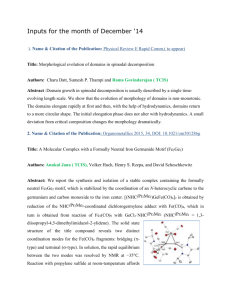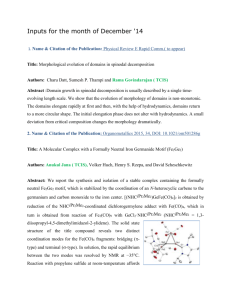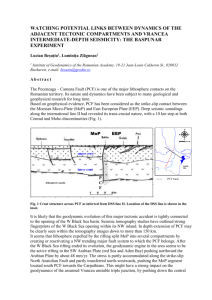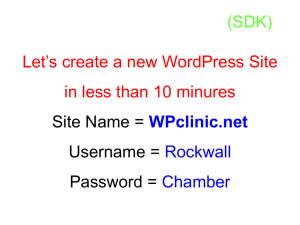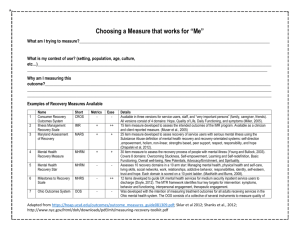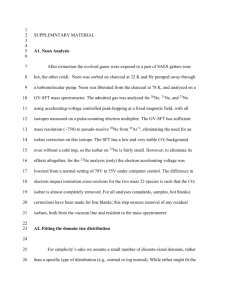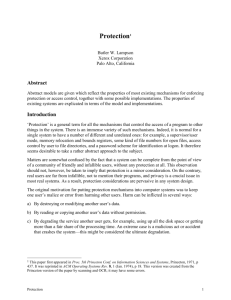Domains within the PCF
advertisement
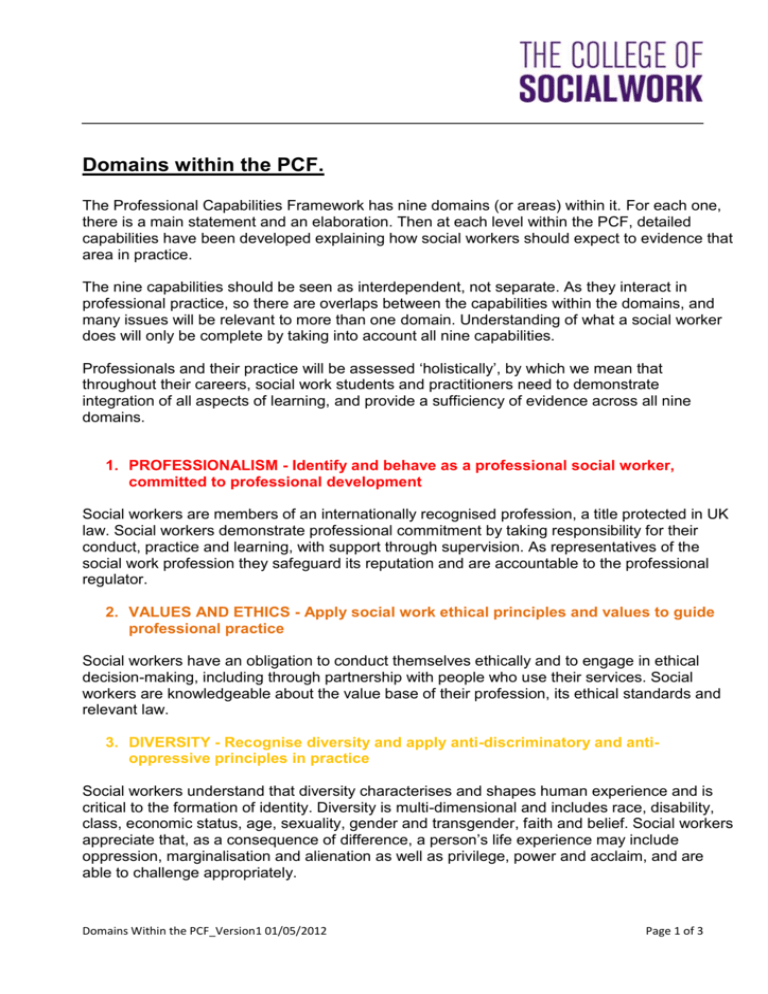
Domains within the PCF. The Professional Capabilities Framework has nine domains (or areas) within it. For each one, there is a main statement and an elaboration. Then at each level within the PCF, detailed capabilities have been developed explaining how social workers should expect to evidence that area in practice. The nine capabilities should be seen as interdependent, not separate. As they interact in professional practice, so there are overlaps between the capabilities within the domains, and many issues will be relevant to more than one domain. Understanding of what a social worker does will only be complete by taking into account all nine capabilities. Professionals and their practice will be assessed ‘holistically’, by which we mean that throughout their careers, social work students and practitioners need to demonstrate integration of all aspects of learning, and provide a sufficiency of evidence across all nine domains. 1. PROFESSIONALISM - Identify and behave as a professional social worker, committed to professional development Social workers are members of an internationally recognised profession, a title protected in UK law. Social workers demonstrate professional commitment by taking responsibility for their conduct, practice and learning, with support through supervision. As representatives of the social work profession they safeguard its reputation and are accountable to the professional regulator. 2. VALUES AND ETHICS - Apply social work ethical principles and values to guide professional practice Social workers have an obligation to conduct themselves ethically and to engage in ethical decision-making, including through partnership with people who use their services. Social workers are knowledgeable about the value base of their profession, its ethical standards and relevant law. 3. DIVERSITY - Recognise diversity and apply anti-discriminatory and antioppressive principles in practice Social workers understand that diversity characterises and shapes human experience and is critical to the formation of identity. Diversity is multi-dimensional and includes race, disability, class, economic status, age, sexuality, gender and transgender, faith and belief. Social workers appreciate that, as a consequence of difference, a person’s life experience may include oppression, marginalisation and alienation as well as privilege, power and acclaim, and are able to challenge appropriately. Domains Within the PCF_Version1 01/05/2012 Page 1 of 3 4. RIGHTS, JUSTICE AND ECONOMIC WELLBEING - Advance human rights and promote social justice and economic wellbeing Social workers recognise the fundamental principles of human rights and equality, and that these are protected in national and international law, conventions and policies. They ensure these principles underpin their practice. Social workers understand the importance of using and contributing to case law and applying these rights in their own practice. They understand the effects of oppression, discrimination and poverty. 5. KNOWLEDGE - Apply knowledge of social sciences, law and social work practice theory Social workers understand psychological, social, cultural, spiritual and physical influences on people; human development throughout the life span and the legal framework for practice. They apply this knowledge in their work with individuals, families and communities. They know and use theories and methods of social work practice. 6. CRITICAL REFLECTION AND ANALYSIS - Apply critical reflection and analysis to inform and provide a rationale for professional decision-making Social workers are knowledgeable about and apply the principles of critical thinking and reasoned discernment. They identify, distinguish, evaluate and integrate multiple sources of knowledge and evidence. These include practice evidence, their own practice experience, service user and carer experience together with research-based, organisational, policy and legal knowledge. They use critical thinking augmented by creativity and curiosity. 7. INTERVENTION AND SKILLS - Use judgement and authority to intervene with individuals, families and communities to promote independence, provide support and prevent harm, neglect and abuse Social workers engage with individuals, families, groups and communities, working alongside people to assess and intervene. They enable effective relationships and are effective communicators, using appropriate skills. Using their professional judgement, they employ a range of interventions: promoting independence, providing support and protection, taking preventative action and ensuring safety whilst balancing rights and risks. They understand and take account of differentials in power, and are able to use authority appropriately. They evaluate their own practice and the outcomes for those they work with. Domains Within the PCF_Version1 01/05/2012 Page 2 of 3 8. CONTEXTS AND ORGANISATIONS - Engage with, inform, and adapt to changing contexts that shape practice. Operate effectively within own organisational frameworks and contribute to the development of services and organisations. Operate effectively within multi-agency and inter-professional settings Social workers are informed about and pro-actively responsive to the challenges and opportunities that come with changing social contexts and constructs. They fulfil this responsibility in accordance with their professional values and ethics, both as individual professionals and as members of the organisation in which they work. They collaborate, inform and are informed by their work with others, inter-professionally and with communities. 9. PROFESSIONAL LEADERSHIP - Take responsibility for the professional learning and development of others through supervision, mentoring, assessing, research, teaching, leadership and management The social work profession evolves through the contribution of its members in activities such as practice research, supervision, assessment of practice, teaching and management. An individual’s contribution will gain influence when undertaken as part of a learning, practice-focused organisation. Learning may be facilitated with a wide range of people including social work colleagues, service users and carers, volunteers, foster carers and other professionals. Domains Within the PCF_Version1 01/05/2012 Page 3 of 3
